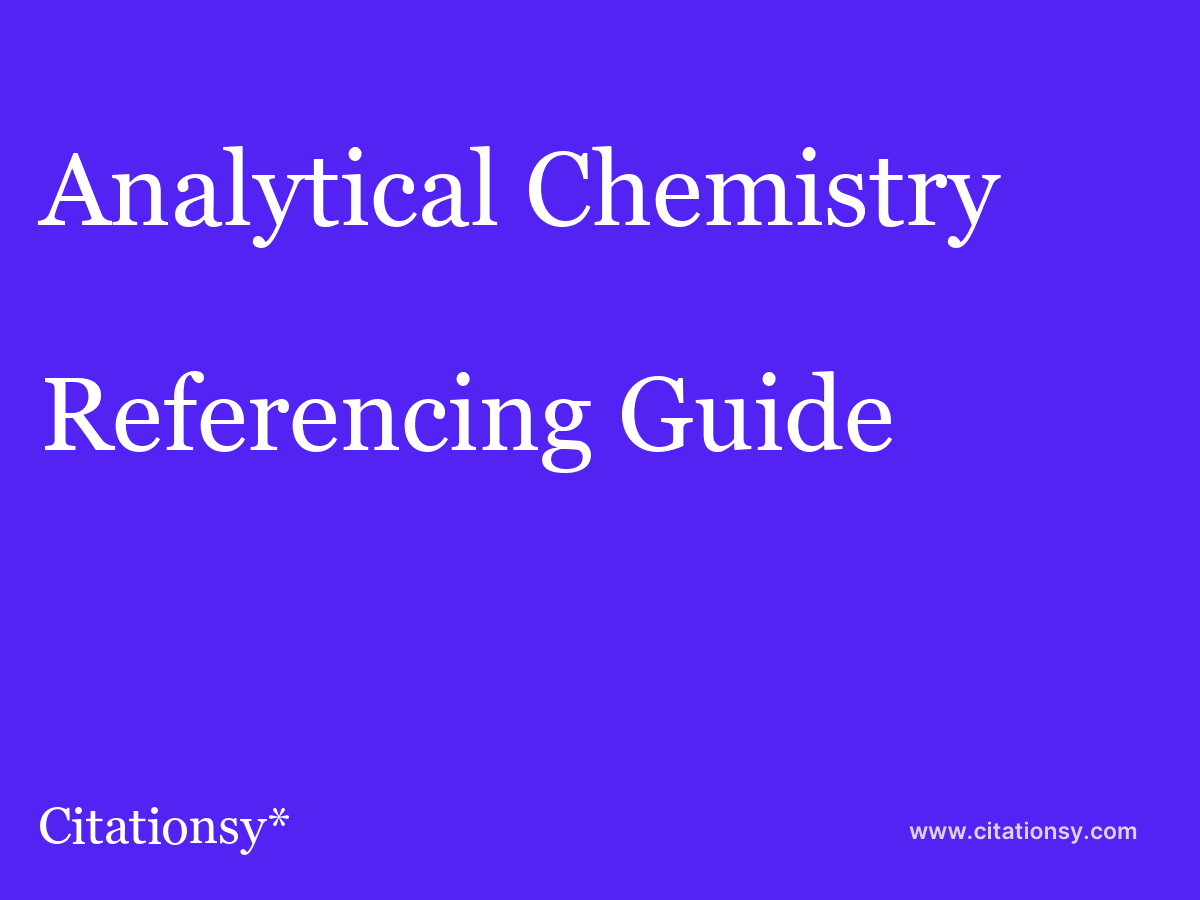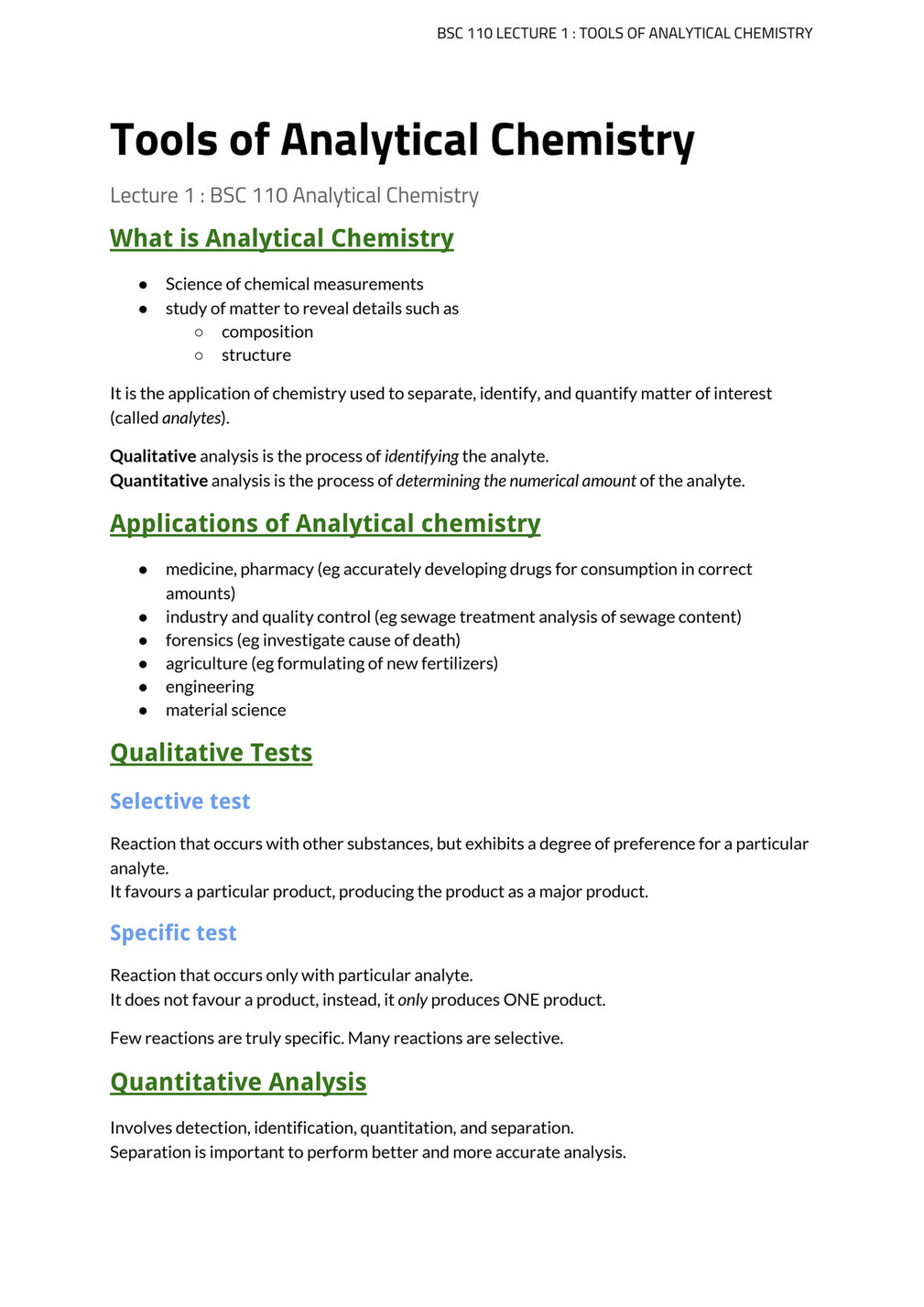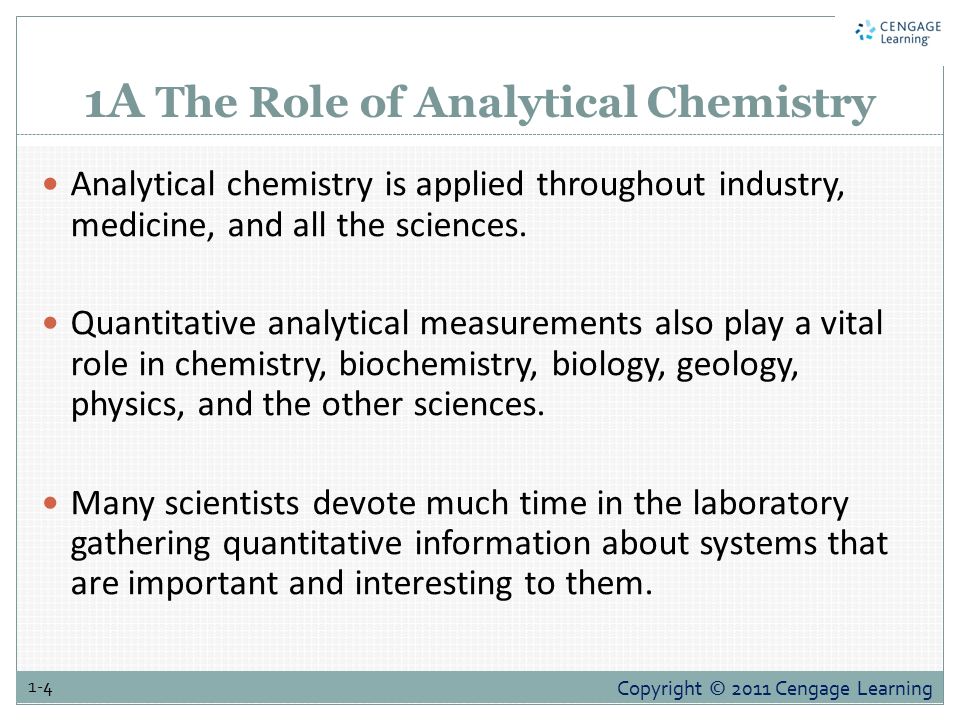Types Of Laboratories In The World
3 Things You Wish You Knew About Analytical Chem Lab
Types Of Science Laboratories 101: The Essential Guide

Gurdeep, Chatwal Anand (2008 ). Critical Approaches of Chemical Analysis Himalaya Publishing Home (India) Ralph L. Shriner, Reynold C. Fuson, David Y. Curtin, Terence C. Morill: The methodical identification of natural substances - a laboratory manual, Verlag Wiley, New York 1980, 6.
Analytical chemistry is a specialised discipline that deals with getting, processing, and presenting both the qualitative and quantitative information of compounds - why is analytical chemistry important. Analytical chemists reveal a substance's structure and structure at both atomic and molecular levels. All students who significant in chemistry should get skills in this topics to be successful in their picked professions.
Analytical chemistry has applications that vary everywhere, including but not limited to: Diagnostic tests need analytical chemistry techniques, from blood typing to identifying hereditary signatures, such as in the case of polymerase chain response tests for viruses. Keeping an eye on the levels of contaminants in the environment requires fast and trustworthy analyses.
6 Secrets About Types Of Laboratories In The World You Can Learn From Tv
Highly precise amounts of active ingredients and precise proportions of products are required in lots of production processes, and analytical chemistry has a vital role in preserving the quality guarantee of these compounds (analytical chemistry labs). Establishing new types of materials, such as superconductors, superinsulators, ultra-light solids, and nano-size devices, needs a high degree of precision and accuracy.
From discovering traces of blood at a crime scene to determining distinct hereditary markers, analytical chemistry has a main role in solving crimes. The reason this field is so essential to many branches of science and industry is due to the fact that it can be utilized to fix the unidentified. If a lot of fish all of a sudden pass away in a lake, analytical chemistry can help trace the source of the problem and determine the hazardous compounds that may have poisoned them.
This is essential due to the fact that precision in measuring the various chemicals or pollutants present in made goods is important to ensuring the quality and safety of products. Accuracy can never ever be over-emphasised when it pertains to producing medicines, processing food or bottling drinks, and this level of quality assurance is only possible with analytical chemistry.
7 Best Tweets Of All Time About Analytical Chemistry Labs

From determining the volumes of liquids to checking the proportions of ingredients, expert system is now used to make accurate measurements at warp speed, with the assistance of sensors - example of analytical chemistry. However comprehensive laboratory analyses aren't just needed to determine the unidentified contaminants in batches of products, but to likewise trace the origin of the contamination itself.
These are a few of the common approaches: The flame test can be performed to either verify or reject the presence of particular ions in liquid services. The flame test determines this based upon the colours that compounds burn when subjected to a flame. Nevertheless, this technique has been made outdated by more accurate tests, such as spectroscopy.
These are referred to as the spectroscopic signature. For that reason, a spectroscope can be used to identify the chemical structure of a substance, supplying a more accurate analysis than utilizing a flame. This is a quantitative form of chemical analysis that is utilized to quantify the mass of an unknown substance. It involves weighing the analyte in its preliminary state, then doing this again after the analyte has been separated.
4 Hottest Laboratory Setting Trends
There are lots of separation techniques that can be used to assist in gravimetric analysis. Some examples of separation methods include chromatography, electrophoresis, and field circulation fractionation.
Considering that analytical chemistry is a core part of chemistry, there's a great chance you're already studying it, or have at least been presented to its ideas. However even if you're not a chemistry major, this topic is still important in all STEM courses and will assist to refine your expert skills when pursuing a career in chemistry.
If you desire an effective profession in this field, you should be able to qualify and measure data in organised and meaningful ways Analytical chemistry is primarily about having the ability to lower complex issues into simpler components that are simple to comprehend - analytical chemistry services. Most chemistry problems you'll come across in your study and practice of chemistry will involve chemical analysis.
The Biggest Lies About Analytical Chemistry Skills
Analytical chemistry utilizes both qualitative and quantitative methods in identifying the structures and molecular structures of evaluated compounds. In order to accomplish this, you need to find out how to utilize statistical techniques and various laboratory instruments and strategies. Usually, you need to study the following standard analytical methodologies: Spectroscopy, Acid-base methods, Potentiometry, Chromatography Beyond learning how to utilize the instruments associated with these analytical methods, you must likewise discover the scientific ideas and mathematical tools needed to understand the analytical process itself.
Analytical chemistry teaches core abilities to students and is an essential branch of many science topics If you're looking to pursue a Masters in analytical chemistry however require to work at the exact same time, an MSc in analytical chemistry range learning may be what you're trying to find - laboratory quality management systems. This is an academic graduate program used by universities like the University of Manchester to certified professional chemists who are already working.
Essential and useful measurement of chemicals, biomolecules, and materials is vital to the advancement of every aspect of modern-day science. Analytical Chemistry is the science devoted to the development of new instrumentation and methods to make it possible for such measurements in all shapes and kinds. Amazing facilities for instrumentation and electronics conception, style, testing, and application, paired with rigorous trainee training, have produced a dynamic, dynamic, top-ranked program in Analytical Chemistry at Indiana University.
The Future Of Analytical Chemistry Technique According To An Expert
Our objective is to conceive, define, and develop future analytical tools and techniques and to train the next generation of leaders in the field. Analytical measurements of glycomic changes are rapidly becoming crucial in the discovery of illness biomarkers.
Nanofluidic devices are able to sense, separate, and sort private particles with unprecedented accuracy due to the fact that of the unique transport properties these nanoscale avenues display. With nanofabrication techniques, we are able to create fluidic circuits ... Newly shown up professors member Megan Thielges is developing nonlinear infrared spectroscopy as a tool for the measurement of protein versatility, i.
The Latest Uhplc Ms Ms Trends: Hip Or Hype?

0. CO; 2-7. PMID 9008869. Ellis LA, Roberts DJ (1997 ). "Chromatographic and hyphenated methods for essential speciation analysis in environmental media". Journal of chromatography. A 774 (1-2): 319. PMID 9253184. Guetens G, De Boeck G, Wood M, Maes RA, Eggermont AA, Highley MS, van Oosterom AT, de Bruijn EA, Tjaden UR (2002 ).
Journal of chromatography. "Hyphenated techniques in anticancer drug tracking. Journal of chromatography.
PMID 12462615. American Chemical Society: Division of Analytical Chemistry Royal Society of Chemistry: Analytical Entrance.
The One Thing About Quality Systems Lab That Keeps Me Up At Night
Candidates for Chair-Elect Benjamin Garcia, Washington University School of Medication, ACS Member Given That 2020 Election Declaration: It is truly an.
There are 2 branches in analytical chemistry: qualitative analysis and quantitative analysis. Qualitative analysis is the decision of those aspects and compounds that are present in a sample of unidentified product.
The procedures by which these goals might be achieved include screening for the chemical reaction of a putative constituent with an admixed reagent or for some distinct physical home of the putative constituent (analytical chemistry technique). Classical techniques include use of the analytical balance, gas manometer, buret, and visual examination of color modification.
Have They Been Lying To You About Laboratory Quality Management?

Physical methods such as use of the mass spectrometer are likewise used. For samples in the gaseous state, optical spectroscopy supplies the finest technique for identifying which atomic and molecular species are present.
The Department of Chemistry at the University of Michigan has a rich custom of excellence in the field of Analytical Chemistry. Hobart H. Willard made this department his house from 1903 to 1951, and introduced the era of crucial analysis in contemporary analytical chemistry. Philip J. Elving, a popular electroanalytical chemist, kept Michigan's stature in the field throughout the period of 19521984, with pioneering research study and influential editorial work.
Gas chromatography (GC) employs insert gases to separate, identify, and quantify unpredictable sample mixtures in food, environmental, and chemical markets. Avantor carries a range of columns, solvents, consumables and gas generators (set laboratory).
The One Thing About What Do Analytical Chemist Do That Keeps Me Up At Night
The Analytical Chemistry Laboratory (ACL) offers a broad variety of analytical chemistry support services to the scientific and engineering programs at Argonne National Lab and specific analysis for federal government, scholastic and commercial organizations, consisting of other nationwide labs and QA/QC programs and audits. We handle a vast array of analytical issues, from routine requirement analyses to distinct issues that need significant advancement of approaches and strategies.
In addition to short-term chemical analysis jobs, we also assist plan and carry out long-lasting projects by embedding our professionals within other research teams. Our scientists join other research study tasks, which vary from developing databases to producing medical isotopes. We welcome these types of collective chances. We are specialists in preparing hard samples for analysis.
We consistently establish new dissolution approaches for extremely refractory samples, such as rare-earth elements, and samples consisting of components that are not easily compatible in option together. We operate under a well-tested quality guarantee plan (QAP) that is audited yearly to confirm outcomes, and we more than happy to share our plan and offer extra QA/QC steps as required for specific projects.
What Google Doesn't Tell You About Most Qualified

We perform wet-chemical and crucial approaches for essential, compositional and isotopic analysis of solid and liquid samples, including radioactive and highly harmful samples. Ion chromatography (IC) Inductively paired plasma/optical emission spectrometry (ICP/OES) Inductively combined plasma/mass spectrometry (ICP/MS) with collision/ response cell Carbon, sulfur LECO analysis Autotitration: Acid-base, redox, and Karl Fischer water Analysis of p, H and ion concentration (e.
Nuclear counting and separations analysis is readily available over a broad variety of sample types, from low-radioactivity ecological samples to samples with high radioactivity requiring containment - example of analytical chemistry. Gamma spectrometry Alpha spectrometry Gross alpha and beta analysis by gas proportional or liquid scintillation Liquid scintillation counting Kd analysis of soil and rock Fourier-Transform Infrared Spectroscopy (FTIR) on strong Scanning electron microscope (SEM) with energy dispersive spectroscopy (EDS).
Analytical chemists research study chemical compounds to determine what they are composed of and how they engage with other compounds. For this reason, analytical chemists play an essential role in taking a look at the relationship between chemistry and the environment, food, fuel, and human and animal medications. They likewise identify how medicines may interact with other medicines or the body of an organism.
4 Things Only Die-hard Fans Get About Set Laboratory
What Duties Will I Have?: Supply options to support active ingredient and packaging development and product solution Conduct product chemistry studies that satisfy worldwide regulative requirements Provide analytical assistance to the supply chain through reliable data, effective analytical approaches and reliable problem fixing Assistance product registrations by supplying concern analysis, methodology and competence to regulative authorities all over the world Represent analytical sciences at group meetings and provide analytical support Style and conduct lab experiments Carry out analytical techniques essential for the characterization of products Design, set up and conduct stability studies Correctly document and report laboratory results Troubleshoot and fine-tune analytical procedures Determine brand-new analytical techniques to improve performance in testing Interact outcomes of research studies and trials to leadership and to outside audiences as required Deal with other scientists throughout disciplines consisting of artificial chemistry, formulation advancement, quality guarantee, discovery and manufacturing Assist in the preparation and writing of regulative filings Supply testament to federal government companies as required Recommended High School Courses: The following high school courses are recommended: agricultural education, biology, chemistry, writing and computer system abilities.
Analytical chemistry is a necessary and fast-developing field of chemical research study since it holds the crucial to the techniques and instruments utilized in the detection, seclusion, characterization and purification of every chemical utilized in science. While almost every area of analytical chemistry is quickly progressing, a couple of option advancements are highlighted below.
These include diagnostic tests, ligand discovery and the ability to check a large volume of material for an analyte of interest. These methods are based upon the existence of highly particular reactions which allow the conjugation of biopolymer particles to ligands, identifying isotopes or dyes, surface areas and so on. Knowing which ligands bind to which particle is crucial because of the specificity of these interactions - chemistry lab setup.
4 Ways Coronavirus Changed The Examples Of Analytical Chemistry Industry Forever

These little particles serve as probes, and can increase the output of ligand screening assays profoundly. DNA and protein microarrays are being studied for ligand binding in just this way. Once again, conjugating biomolecules with little probe particles can lead the way for various biochemical analytical tests, which are less troublesome and much faster than conventional testing techniques.
Using antibody-conjugated techniques offers high uniqueness and level of sensitivity without the requirement for filtration of the sample, in addition to being versatile to practically any analyte. Credit: extender_01/ Little molecules added to biomolecules can act as probes for rigorous biochemical analyses. The restrictions of conventional chemical and chromatographic methods have actually spurred greater research study into organic chemistry to evolve still better testing and labeling strategies.
Comments
Post a Comment